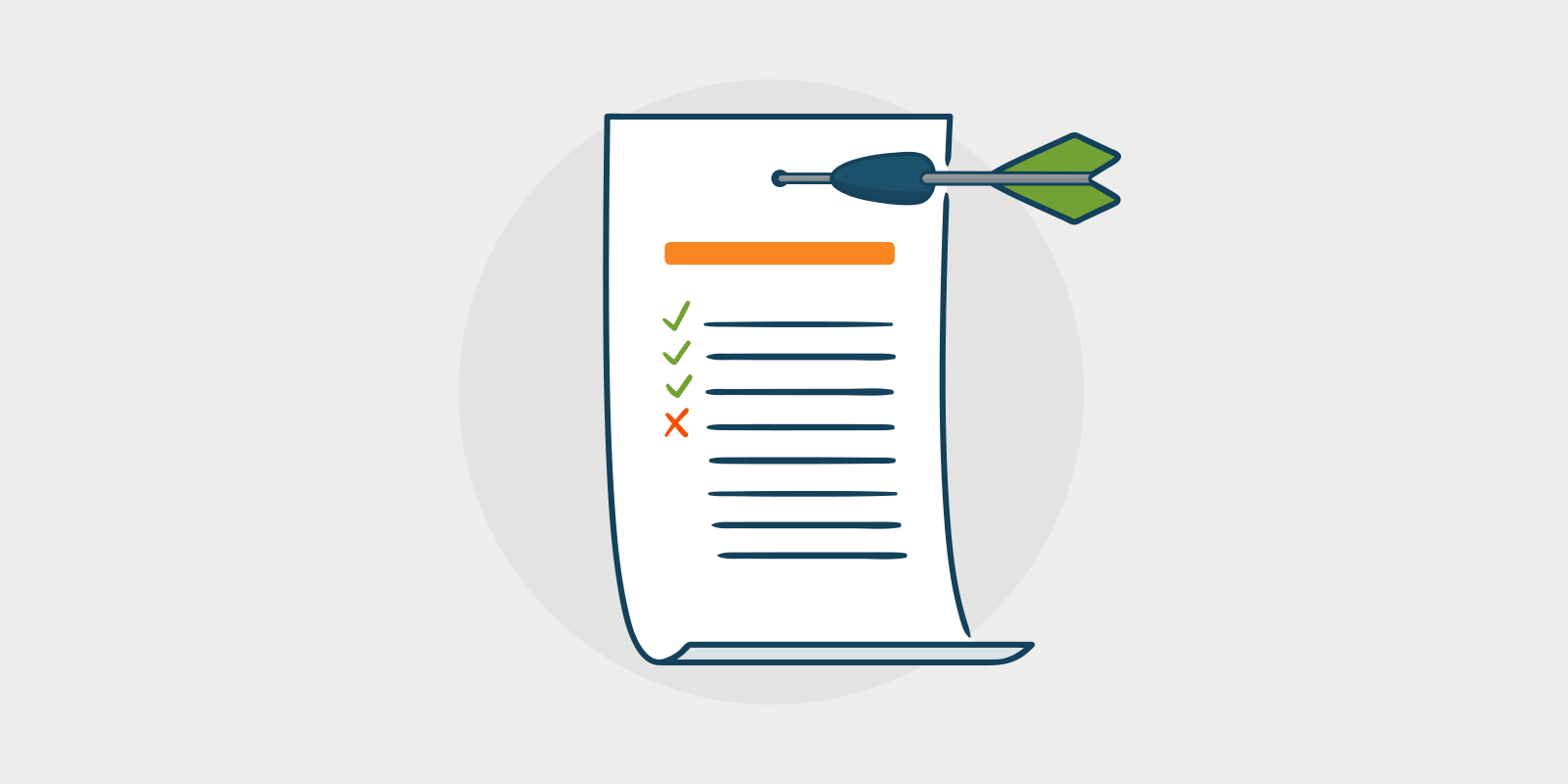
- Not doing proper tenant screening and background checks
- Lacking adequate insurance coverage
- Not having a comprehensive tenancy agreement
- Failing to protect the security deposit
- Not keeping accurate records and paperwork
- Not understanding tax obligations
- Not staying up-to-date with the regulations
- FAQs
- Things to remember
Being a landlord can be lucrative, but pitfalls can lead to headaches and costly mistakes. With so much to keep track of, it’s easy to overlook a few essential details. Fortunately, there are simple steps to minimise your chances of making a costly error when renting out your property.
Let’s look at the seven most common mistakes landlords make when renting in the UK and how to avoid them.
Mistake #1: Not doing proper tenant screening and background checks
As an independent landlord, one of your primary responsibilities is ensuring you have the right tenant in your property. And proper tenant screening and background checks are the best way to do just that.
Sadly, landlords often skip this crucial step or rush through it without due diligence, potentially leading to stress for the landlord down the line. For example, you could end up with a tenant having a criminal or eviction record — someone who may be unable to pay rent on time. Similarly, you may harbour a tenant with a history of damaging property, which isn’t an ideal situation for any landlord.
However, there are several ways you can screen potential tenants quickly and within the limits of UK law.
Here are some likely lines of action:
- Ask for references from previous landlords;
- Run credit checks;
- Verify employment information;
- Obtain proof of identity (passport or driver’s licence);
- Run criminal background checks.
Doing these checks thoroughly before signing a tenancy agreement will help you avoid headaches and ensure your property is in the right hands.
Mistake #2: Lacking adequate insurance coverage
One of the several landlord mistakes when renting is lacking adequate insurance coverage. While this is understandable, considering the cost involved and the complexity of insurance policies, landlords in the UK must protect their rental property from any eventuality.
Here’s an overview of common insurance coverages landlords overlook in the UK:
Tenant Liability Insurance
It’s common for landlords to unwittingly neglect to require tenants to get tenant liability insurance — a coverage that protects tenants against damage they may accidentally cause to the property and safeguards their tenancy deposit. As this kind of policy isn’t required by law, it’s easy for landlords to push it aside. However, without it, accidents and costly repairs could quickly become a burden, preventing tenants from paying future rent.
Property owner’s liability insurance
Property owners’ liability insurance covers landlords against claims of personal injury or third-party property damage on their rental property. Unlike tenant liability insurance, this kind of policy is required by law in the UK as part of a landlord’s responsibility to tenants.
As a landlord, you should consider other types of insurance, such as buildings insurance and contents coverage, to safeguard your investment from possible losses due to extreme weather conditions, flooding or theft. Registering on the Rentila property software lets you easily keep track of tenants and properties in one place and ensure they have the right coverage for all eventualities.
Mistake #3: Not having a comprehensive tenancy agreement
When renting out your property to tenants, one of the most vital things to do is ensure you have a comprehensive tenancy agreement. This document should clearly outline the expectations and responsibilities of both landlord and tenant and act as a safeguard for both parties in case of any disputes.
Unfortunately, too many landlords overlook this vital step or don’t understand its importance. Having a comprehensive tenancy agreement helps both parties to know exactly what’s expected of them and sets out the terms of the contract to avoid confusion or misunderstanding.
Content-wise, your tenancy agreement should include the following:
- The names of the landlord and tenant;
- Full address of the property being rented;
- Details of any deposit taken;
- Lease length;
- Rent amount;
- Rules and regulations (e.g., smoking policy);
- Repairs that are the landlord’s responsibility;
- The termination notice period for both landlord and tenant.
Property management software like Rentila boasts several benefits. For example, Rentila offers pre-filled tenancy agreements, ensuring zero miscommunication or problems down the line.
Mistake #4: Failing to protect the security deposit
One of the common landlord mistakes made in the UK when renting is not correctly protecting security deposits.
According to the UK Government, a landlord must protect a tenant’s deposit in an approved tenancy deposit protection (TDP) scheme within 30 days of receiving it. This ensures that deposits are returned at the end of the tenancy when all the agreement terms have been met.
If a landlord fails to protect a tenant’s deposit or provide written information about how it has been protected, they may face court action and be liable for up to three times the deposit amount.
To avoid making this mistake, landlords must ensure the following:
- Have an approved Tenancy Deposit Protection in place before taking a security deposit from tenants;
- Provide tenants with written information about how their money is protected, including where it’s held and how disputes will be resolved;
- Register any existing deposits with an approved scheme before the deadline and provide tenants with proof that this has been done.
Mistake #5: Not keeping accurate records and paperwork
Not properly keeping records and paperwork is a mistake many landlords make in the UK. Whether you’re new to the game or have been in the landlord business for years, you must document your rent payments and other important information about your property.
Failing to keep accurate records not only can cause legal complications but it can also lead to tenant disputes. Keeping up with all your paperwork and receipts helps to ensure that you have an organised system should you ever face a dispute — one of the traits of a successful landlord. Plus, having all this data allows you to think more strategically about how you rent out your property.
Keeping records and paperwork involves the following:
- Collecting proper identification and addresses from tenants before signing the contract;
- Having a receipt book available for both deposits and rent payments;
- Making a note of late fees and other penalties if applicable;
- Keeping copies of agreements, contracts, inventory checks and receipts;
- Updating tenancy agreements every time there’s a change of tenant or rent increase;
- Storing this information in an easily accessible location, such as an online database like Rentila’s cloud-based property management software.
Mistake #6: Not understanding tax obligations
If you’re a landlord in the UK, it’s essential to understand your tax obligations. While this is one of landlords’ biggest worries, not doing so can lead to hefty tax liabilities and potential penalties, which is certainly not a good look.
So, what kind of taxes do landlords in the UK have to pay?
Landlord Taxes
The primary type of tax that landlords need to be aware of is “Income Tax.” This is paid on rental profits from renting out accommodation in the UK. If you’re renting out a property you own or jointly with someone else, you must declare the income made each year on your Self-Assessment tax return.
Another tax landlords need to consider is the “Capital Gains Tax.” This applies if you made a profit when selling a property that wasn’t an owner-occupied residence.
Stamp Duty Land Tax (SDLT)
Stamp Duty Land Tax (SDLT) doesn’t apply to all landlords in the UK. Still, those who need to pay must file a return within 14 days of completion or risk being fined or facing prosecution. SDLT is payable at different rates depending on where the property is located and its value in the UK.
Understanding your taxes as a landlord can seem daunting, but it doesn’t have to be. Rentila’s suite of property management tools can help make tracking income and profits easier. You may also set payment reminders to enable you to file taxes quicker and more efficiently.
Mistake #7: Not staying up-to-date with the regulations
One final mistake landlords make is not staying up-to-date with regulations. Nowadays, the regulatory landscape for landlords in the UK is constantly changing, with new regulations, laws and rules cropping up regularly.
Staying on top of such changes can be daunting and time-consuming, but you must know what’s expected of you. Failures to comply with specific regulations can lead to stiff fines or even invalidation of the tenancy agreement. You can always check our blog page for what’s new about renting and regulations in the UK.
FAQs
Who makes the best tenants?
The best tenants are those who’re:
- Financially responsible;
- Respectful of the property;
- Have a stable income;
- Maintain open communication with the landlord;
- Following the terms of the lease agreement.
These qualities contribute to a positive landlord-tenant relationship and a well-maintained property.
What are landlords’ responsibilities?
Landlords’ responsibilities include the following:
- Ensuring the property is safe and habitable;
- Conducting necessary repairs and maintenance;
- Complying with local and federal housing laws;
- Providing proper notice for entry;
- Returning security deposits per the lease agreement terms.
These responsibilities help maintain a positive landlord-tenant relationship and a well-managed property.
Things to remember
All in all, being a landlord isn’t easy, and a few mistakes here and there are inevitable. However, with a knowledge of these seven common mistakes landlords make when renting and how to avoid them, you can minimise the errors and save yourself a lot of time, money, and hassle.
Using tools such as Rentila can help, too. Our end-to-end property management software allows for seamless tenant onboarding, amongst many other features, making monitoring your properties easier and staying ahead of the changing legislation.
Landlord Letting.


 Protect the environment. Reduce paper consumption and help save the trees as well as save money at the same time.
Protect the environment. Reduce paper consumption and help save the trees as well as save money at the same time. 
